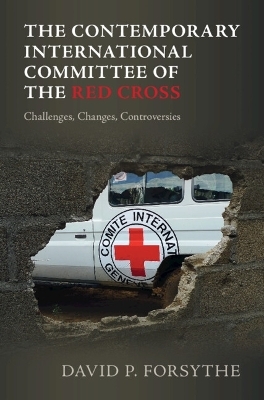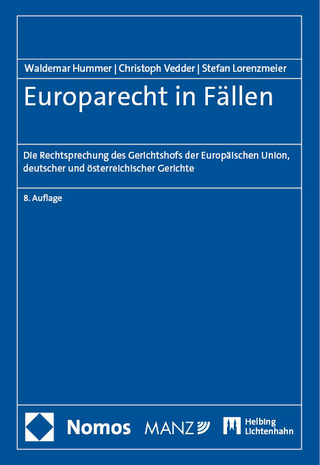
The Contemporary International Committee of the Red Cross
Cambridge University Press (Verlag)
978-1-009-38696-8 (ISBN)
The International Committee of the Red Cross (ICRC) was founded in 1863 and is often considered the gold standard in humanitarian action. Despite its many positive achievements over more than 150 years, some former ICRC officials believe that the organization is now in decline because of a series of recent policy choices. Their view is that the organization has undermined its reputation for independent and neutral humanitarian action, while growing too fast and too large, which has weakened its reputation for quick, tightly focused, and effective action in the field. David P. Forsythe revisits the ICRC policy decisions of recent decades and suggests that the organization is not in fatal decline, but that it does need to reconsider some of its policies at the margins. Though some errors have been made and some corrections are in order, Forsythe argues that its obituary is premature.
David P. Forsythe is Professor Emeritus, University Professor and Charles J. Mach Distinguished Professor of Political Science at the University of Nebraska-Lincoln. He is a past consultant to the Red Cross Movement and the UN refugee office, as well as author of multiple publications about the ICRC, including the first independent book, Humanitarian Politics: The International Committee of the Red Cross (1977).
Preface: who and why; 1. The contemporary ICRC and its critics: the slippery slope of decline?; 2. The ICRC and the global humanitarian system: the critics in context; 3. History: Part I - The gentlemen of Geneva and Dunant's dream; 4. History: Part II - From the death of Moynier to the end of the Cold War; 5. The Red Cross movement: Part I - The Swiss and the rest; 6. The Red Cross movement: Part II - Seville and Syria; 7. ICRC relations with Bern: Part I - Losing the moral compass; 8. ICRC relations with Bern: Part II - More controversy; 9. Humanitarians and business: Part I - For humanity?; 10. Humanitarians and business: Part II - The World Economic Forum; 11. Interpreting the mandate: Part I - From relief to resilience; 12. Interpreting the mandate: Part II - Urban violence and migration; 13. Has the traditional focus been lost?: Part I - Laws of war; 14. Has the traditional focus been lost?: Part II - Political prisoners; 15. ICRC governance and management: Part I - The top level; 16. ICRC governance and management: Part II - On down the line; 17. Conclusion: Part I - Summing up; 18. Conclusion: Part II - The future; Epilogue: The war in Ukraine – challenges and controversies; Annex A: ICRC organizational chart.
| Erscheinungsdatum | 23.01.2024 |
|---|---|
| Zusatzinfo | Worked examples or Exercises |
| Verlagsort | Cambridge |
| Sprache | englisch |
| Maße | 160 x 235 mm |
| Gewicht | 861 g |
| Themenwelt | Recht / Steuern ► EU / Internationales Recht |
| Recht / Steuern ► Öffentliches Recht ► Völkerrecht | |
| Sozialwissenschaften ► Pädagogik ► Sozialpädagogik | |
| Sozialwissenschaften ► Politik / Verwaltung ► Europäische / Internationale Politik | |
| Sozialwissenschaften ► Soziologie | |
| ISBN-10 | 1-009-38696-4 / 1009386964 |
| ISBN-13 | 978-1-009-38696-8 / 9781009386968 |
| Zustand | Neuware |
| Informationen gemäß Produktsicherheitsverordnung (GPSR) | |
| Haben Sie eine Frage zum Produkt? |
aus dem Bereich


